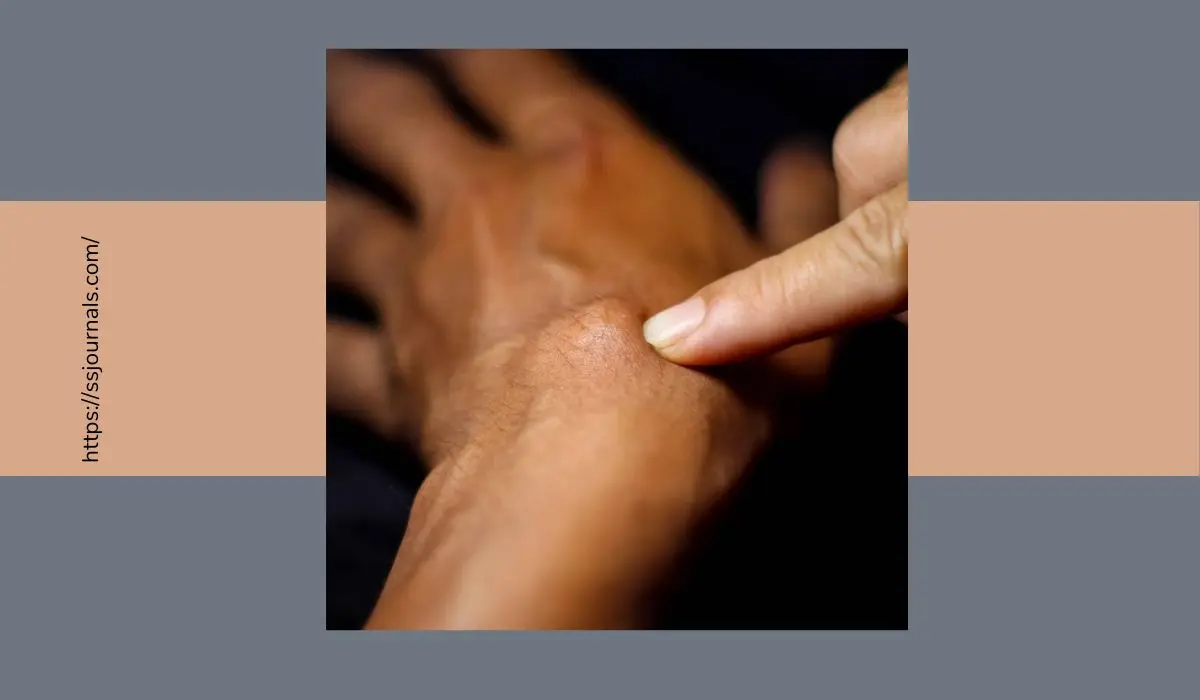Ever wondered about those mysterious lumps on your wrists or hands? Ganglion cysts, these fluid-filled pouches, have been quite the head-scratcher for many. While we’re still figuring out the complete story behind them, there’s an interesting twist involving vitamins that have caught the attention of researchers.
In this article, let’s take a stroll through the world of ganglion cysts, unravel the science behind their creation, and explore the potential connection they might have with vitamin deficiencies.
What Is A Ganglion Cyst?
Think of ganglion cysts as those unexpected guests that show up around your joints or tendons, especially in the wrists or hands. These lumps, filled with a jelly-like fluid, sometimes peek out just beneath your skin. Though they aren’t usually a cause for major concern, the mystery of what triggers their appearance is still unsolved.

What Causes Ganglion Cysts?
➜ Joint or Tendon Troubles
One possible tale of ganglion cysts points to irritation in the joints or tendons. This irritation could lead to a leakage of synovial fluid, a lubricant that keeps our joints moving smoothly, forming these peculiar cysts.
➜ Bumps and Bruises
Trauma or repetitive stress can also play a leading role in the ganglion cyst saga. Engaging in activities that put stress on your wrists or hands, or a notable injury, might be the spark that ignites the cyst-creating process.
The Intriguing Vitamin Connection
Recent studies have hinted at a potential link between ganglion cysts and our vitamin intake. Though we’re not ready to declare vitamins as the heroes just yet, some of these essential nutrients seem to have a say in our joint health, possibly affecting the likelihood of developing ganglion cysts.
◾️ Vitamin D
Vitamin D, often associated with bone health, is making a cameo in the ganglion cyst narrative. Its anti-inflammatory properties could be a game-changer for joint health, but we’re still piecing together the full story of its involvement in cyst formation.
◾️ B-Team to the Rescue
Enter the B vitamins—B6, B12, and folate. These power players in the vitamin world are essential for nerve function and might have a hand in maintaining joint integrity. Could a deficiency in these vitamins increase the chances of those pesky cysts? It’s a possibility that keeps researchers on their toes.
How Are Ganglion Cysts Treated?
➜ Revamping Your Diet
One way to fortify your defenses against ganglion cysts is through a well-rounded diet. Foods that boast vitamin D, like fatty fish and fortified dairy products, could be allies in your joint health journey. Meanwhile, the B vitamins can be found in leafy greens, lean meats, and whole grains, making them valuable additions to your plate.
➜ Supplementing Smartly
When the food on your plate is not relatively fresh, supplements might come into play. But then comes the catch: before you rush to the nearest drugstore, consult with a healthcare professional. Too important of a good thing can occasionally be not-so-good, and we want those vitamins to work in harmony, not cause trouble.
➜ Life’s Little Adjustments
In the world of ganglion cysts, prevention is the name of the game. Think about your lifestyle and how it might be impacting your joints. If your activities involve a lot of wrist and hand action, consider dialing it back a bit. Small tweaks can sometimes make a big difference.
Conclusion
While ganglion cysts remain more of a curious mystery than a health scare, the potential tie to vitamin deficiencies adds a fascinating layer to the narrative. Taking a holistic approach to your joint health—mixing a balanced diet, careful supplementation, and lifestyle tweaks—could be the winning combination.
As the research journey continues, remember to consult with healthcare professionals for personalized advice tailored to your unique needs and health conditions. After all, this is your health story, and it deserves a thoughtful and individualized plot.
FAQ
Ganglion excrescences are fluid-filled lumps that generally develop along joints or tendons, particularly in the wrists and hands. These excrescences are frequently visible just beneath the skin and are generally non-cancerous.
Ganglion excrescences are believed to form due to vexation in joints or tendons. This vexation can lead to the leakage of synovial fluid, which results in the conformation of a tubercle. Trauma or repetitive stress on a joint or tendon is also a common detector for their development.
Recent studies suggest an implicit connection between ganglion excrescence and certain vitamin deficiencies. While further exploration is demanded to establish a definitive link, vitamins similar to D and B-complex ( B6, B12, and folate) have been intertwined in common health and could play a part in precluding or reducing the threat of ganglion tubercle conformation.
Vitamin D is pivotal for bone health and may have anti-inflammatory effects. Some exploration indicates that insufficiency in vitamin D could contribute to common-affiliated issues, potentially impacting the thre
Maintaining a well-balanced diet is crucial. Include foods rich in vitamin D, such as adipose fish and fortified dairy products, and incorporate vitamin B-rich foods like lush flora, spare flesh, and whole grains. However, consider supplements, but consult with a healthcare professional for substantiated advice if salutary sources are inadequate.

